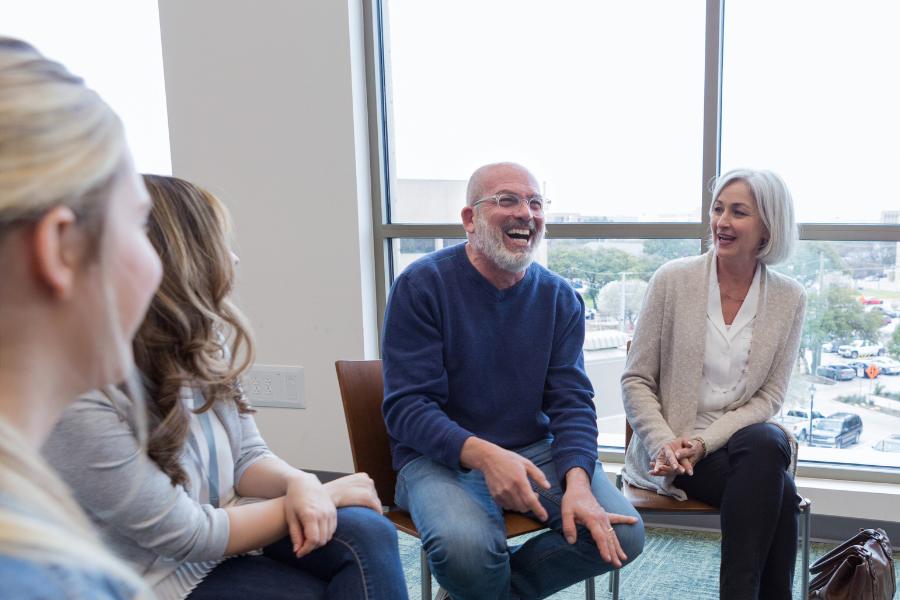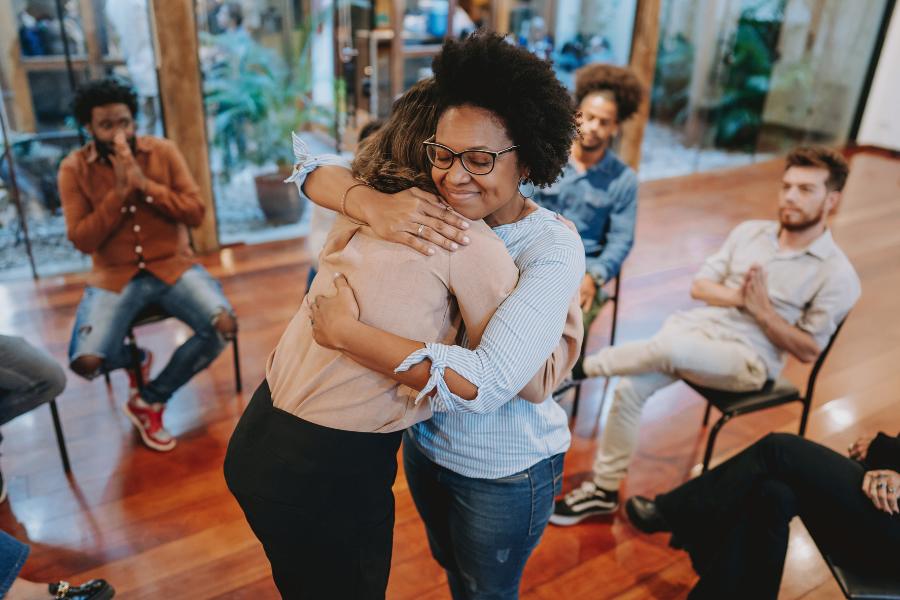Our Recovery Community Organization Toolkit
Building Sobriety Through Community Connections
With growing popularity and communities embracing them, Recovery Community Organizations (often called RCOs) are fast becoming the backbone of the recovery movement.
At SOBRLIFE we like to stay at the forefront of innovation and have put together a toolkit with all the resources and strategies you need to start and sustain a successful RCO.
Whether you’re starting a new one or looking to grow an existing one, this will help you build a recovery community. Let’s get started, and remember to look out for our bold action items to get your organization started in earnest!
What is a Recovery Community Organization Anyway?
To begin with, Recovery Community Organizations are independent, non-profit organizations run and governed by members of local recovery communities.
These grassroots organizations have spread like wildfire across the country and provide recovery-focused resources, advocacy, and peer support services to individuals and families effected by addiction.
Essential Elements of a Successful RCO

1. Clear Mission and Values
Get started by defining your organization’s purpose and values. Recovery community organizations that are well known have developed their missions to support recovery initiatives by responding to internal and external demands.
This clarity will attract like-minded people and shape your programs and services.
Action Item: Write a mission statement that reflects your community’s needs and goals.
2. Peer Support Programs
Peer support is the lifeblood of RCOs. Friends and family members are part of the recovery process and support network for many people in sobriety and are often recruited and engaged by effective recovery community organizations.
Implement evidence-based peer recovery support services (PRSS) to build connection and mutual aid among community members.
Key Elements:
- One-on-one peer coaching
- Recovery support groups
- Telephone recovery support
- Recovery community centers
3. Community Outreach and Engagement
Build relationships with local stakeholders to develop the infrastructure for community engagement:
- Treatment providers
- Healthcare systems
- Criminal justice agencies
- Faith-based organizations
- Educational institutions
Action Item: Develop an outreach plan to connect with potential partners and promote your RCO.
4. Advocacy and Education
Empower your community to challenge stigma and recovery-friendly policies. The voices of people in recovery community organizations are key to educating the public, challenging stigma, and influencing policymakers.
Giving recovery advocates a platform is one of the critical elements of sharing stories effectively (not to mention helping shape public opinion).
Key Actions:
- Host recovery advocacy training sessions
- Organize community education events
- Engage with local media
- Get involved in policy-making
5. Funding Model
Develop a multiple funding stream strategy for long-term sustainability. Consider:
- Government grants
- Private foundations
- Individual donations
- Fee-for-service programs
- Social enterprise initiatives
- Open Society Foundation
Action Item: Research and apply for grants in your area, and make sure your plans highlight your core principles and programs well.
Your RCO Team

The Board of Directors AKA: The Board
Recruit a diverse and passionate board of directors to provide direction and oversight. Aim for a mix of:
- People in recovery
- Business professionals
- Healthcare experts
- Legal advisors
- Marketing specialists
Staff and Volunteers
Build a team of dedicated staff and volunteers who are passionate about your mission. Whenever possible, hire people with lived experience of recovery.
Best Practices:
- Provide comprehensive training on peer support principles
- Develop clear policies and procedures
- Offer ongoing supervision and support
- Opportunities for professional development
A Recovery Community Organization Toolkit: Programs and Services
1. Recovery Coaching
Train and certify peer recovery coaches according to the licensing requirements of your state to support individuals at different stages of their recovery journey. Examples of good practices in recovery coaching include goal setting, resource navigation, and relapse prevention.
Key Elements:
- Goal setting and action planning
- Resource navigation
- Relapse prevention strategies
- Life skills development
2. Recovery Community Center
Create a physical space and materials needed for recovery activities and services, modeled on successful recovery community organizations to develop effective recovery community centers.
This space can be the catalyst for community building and a safe, substance-free environment for socializing and support.
Options:
- Support group meetings
- Wellness classes (yoga, meditation, nutrition)
- Job readiness workshops
- Computer lab and resource library
- Social events and recreational activities
3. Recovery Housing Support
Partner with local recovery residences or develop your own recovery housing program to provide safe and supportive living environments for people in early recovery.
Action Item: Research recovery housing best practices and partner with existing providers as critical elements of your offerings.
4. Family Support Services
Acknowledge the impact of addiction on families and offer targeted support for family members of people in recovery.
Programs:
- Family education workshops
- Family support groups
- Parenting classes for people in recovery
- Family reunification services
Evaluation and Continuous Improvement
Have a system in place to track outcomes and gather feedback to show your RCO’s impact and areas for growth.
Key Indicators:
- Number of people served
- Engagement in recovery support activities
- Quality of life measures
- Substance use reduction
- Employment and housing stability
Action Item: Develop a data collection plan and choose assessment tools for your programs.
Technology for RCO Success
Use digital tools to grow your reach and streamline your operations:
- Online Support Groups: Host virtual recovery meetings and support groups to increase reach.
- Mobile Apps: Develop or partner with existing recovery support apps to provide on-the-go resources.
- Social Media: Build an online community to share recovery stories and resources.
- Customer Relationship Management (CRM) Software: Have a system to manage participant data and track outcomes.
Partnerships and Collaboration

Connect with other RCOs and recovery support organizations to share knowledge and scale your impact:
- Become a member of national organizations like the Association of Recovery Community Organizations (ARCO)
- Attend recovery-focused conferences and events
- Join online forums and webinars for RCO leaders
- Look into joint programming or resource sharing with other organizations
Building a Recovery Community Hub is More Than Possible!
As you start out in this incredible effort, you are not alone. Join the “recover out loud” community at SOBRLIFE to connect with other recovery advocates, get more resources, and share your story.
Our recovery community organization toolkit is just a jumping-off point, and your recovery community organization has to take the form that makes the most sense for your local area.
Please feel free to reach out to us for additional support, and drop a bookmark to visit us again soon for more resources that can help your RCO take flight!
